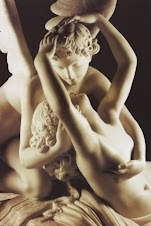I Wandered Lonely As A Cloud
I wandered lonely as a cloud
That floats on high o'er vales and hills,
When all at once I saw a crowd,
A host, of golden daffodils;
Beside the lake, beneath the trees,
Fluttering and dancing in the breeze.Continuous as the stars that shine
And twinkle on the milky way,
They stretched in never-ending line
Along the margin of a bay:
Ten thousand saw I at a glance,
Tossing their heads in sprightly dance.The waves beside them danced, but they
Out-did the sparkling leaves in glee;
A poet could not be but gay,
In such a jocund company!
I gazed-and gazed-but little thought
What wealth the show to me had brought:For oft, when on my couch I lie
In vacant or in pensive mood,
They flash upon that inward eye
Which is the bliss of solitude;
And then my heart with pleasure fills,
And dances with the daffodils.
Analysis
The speaker “wandered lonely”, having no company since he was “float[ing] on high o’er” the other people he was around. The speaker feels as if he has better knowledge and understanding, and since he feels that he is so high, he is “as lonely as a cloud”. “A host of golden daffodils” catch his eye because they are not the same as the monotonous and rolling green “vales and hills” that he had been floating over.
The speaker begins to admire the daffodils, noticing how far they have spread around. There are “ten thousand that [he] saw at a glance”. Such a huge group of these flowers was a pleasant thing for him to see. These lively flowers are constantly “fluttering and dancing in the breeze”. The speaker compares their movements to the “twinkling on the milky way” and “sprightly” dances, showing the reader that he sees them in a somewhat magical light.
The bright and yellow daffodils have his full attention. He describes the flowers as gleeful and believes that any person could look at such joy and “not be but gay”. The speaker himself is totally filled up with the beauty of his “jocund company”. In his elated state of mind, he is not thinking about “the wealth” of the scene he stumbled upon.
When the speaker goes back to reality, he will feel the dread of being alone again, lying on his couch. However, seeing the daffodils has caused a change in him. From this point on, anytime the speaker is “in vacant or pensive mood”, he remembers the sweet pleasure of the flowers and imagines “dancing with the daffodils”. Not only is he able to remember the time he had with his “sprightly” friends, but he can now have joy while being alone. He has the “bliss of solitude”.


